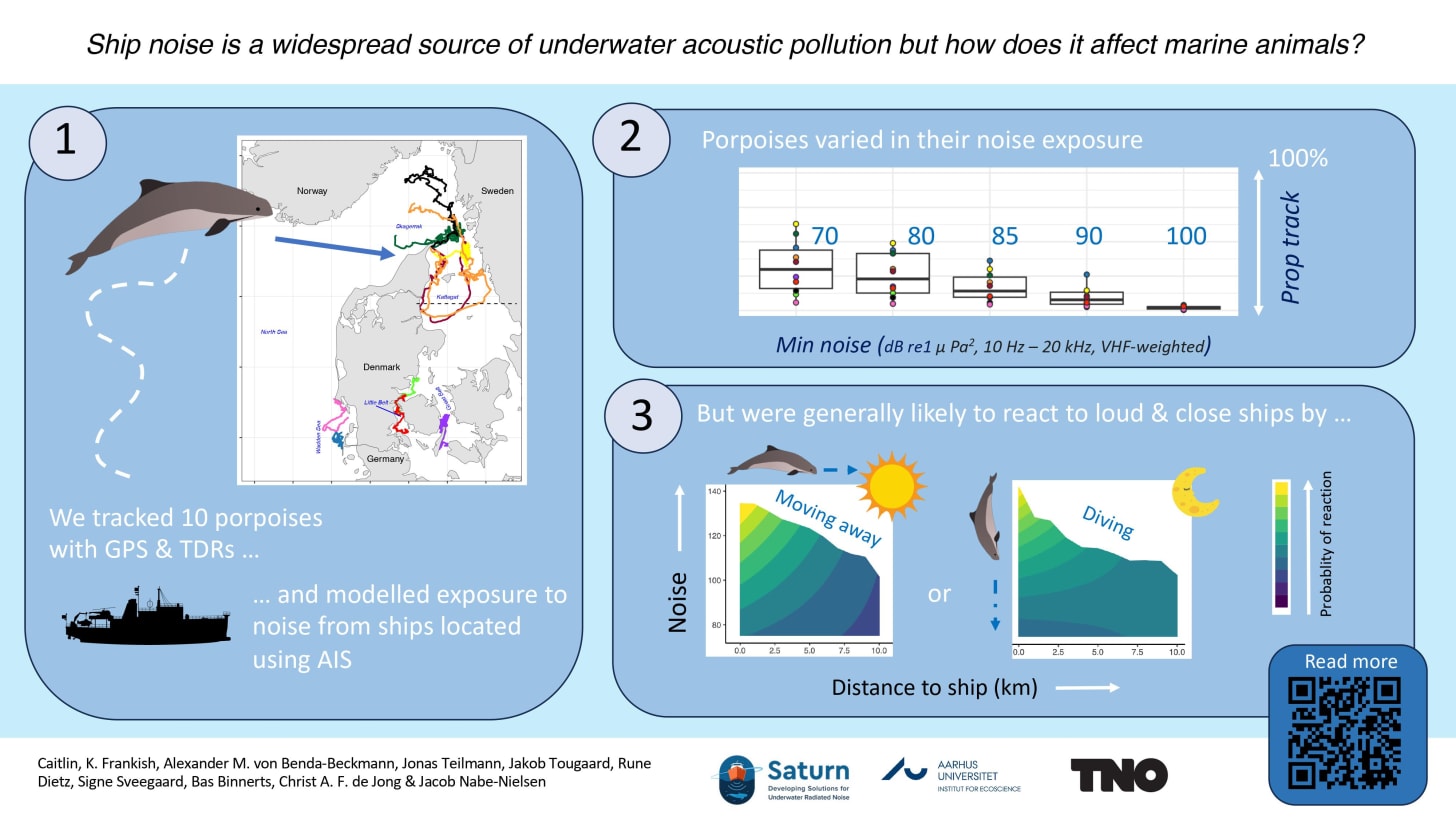New Animated Video on Underwater Noise!
Learn about how slowing down large vessels can significantly reduce the noise they emit and lead to much quieter oceans
Launching a New Animated Video on Vessel Slowdowns
Noise pollution from ships can disrupt the ability of marine mammals to locate food, detect predators, and communicate. The good news is that we can do something about it! Slowing down ships is an effective and scalable way to reduce underwater noise in our oceans and its impacts on marine mammals.
In this new animated explainer video created by Amy Dozier (MaREI, University College Cork) and voiced by Charlotte Rose Findlay (Aarhus University), learn about the problem of underwater radiated noise from shipping and how reducing vessel speeds can make a big impact.
This video is based on recent research conducted within the SATURN project on the effectiveness of vessel slowdowns, which recently made the cover of the journal Science Advances. You can read more about the research on our website here, or read the open access article by SATURN researchers Charlotte Rose Findlay, Laia Rojano-Doñate, Jakob Tougaard, Mark Johnson, and Peter Teglberg Madsen at https://www.science.org/doi/10.1126/sciadv.adf2987.
Thanks to our amazing partners and their professional networks, we are delighted to offer subtitles in twenty-three languages: Arabic, Bulgarian, Brazilian Portuguese, Chinese, Croatian, Danish, Dutch, English, French, German, Greek, Hindi, Indonesian, Inuit, Italian, Korean, Polish, Russian, Spanish, Tagalog, Turkish, Ukrainian, and Vietnamese on YouTube. Watch the video on YouTube here.
Illustration and animation: Amy Dozier
Voiceover: Charlotte Rose Findlay
New Paper on Harbour Porpoise Exposure to Vessel Noise
Just how much shipping noise are harbour porpoises exposed to — and how does it affect their behaviour? In a new paper, SATURN researcher Caitlin Frankish (Aarhus University) and colleagues found that porpoises were exposed to ship noise above ambient 1/3 of the time, and that ships as far away as 2 kilometres caused animals to react. See some great graphics showing ships passing by harbour porpoises here.
A Brief Farewell!
I (Amy Dozier) wanted to say goodbye and a sincere thank you before I depart the project this month. I have been the person behind SATURN’s website, social media accounts, infographics, and this newsletter for the past three years, and it has been such a pleasure sharing SATURN’s research with you. I will truly miss communicating all the brilliant science that is being done by this wonderful team, but my colleagues at MaREI, University College Cork will continue to share all of the exciting SATURN research and results that are coming in 2024. Follow our LinkedIn, Instagram, and X / Twitter accounts to stay informed with updates!
With gratitude,
Amy
See you in 2024!
Keep an eye out in February for the 3rd SATURN research newsletter, with updates on our research progress over the past year. In the meantime, we hope you have a very happy holiday season, and we look forward to another year of research!



